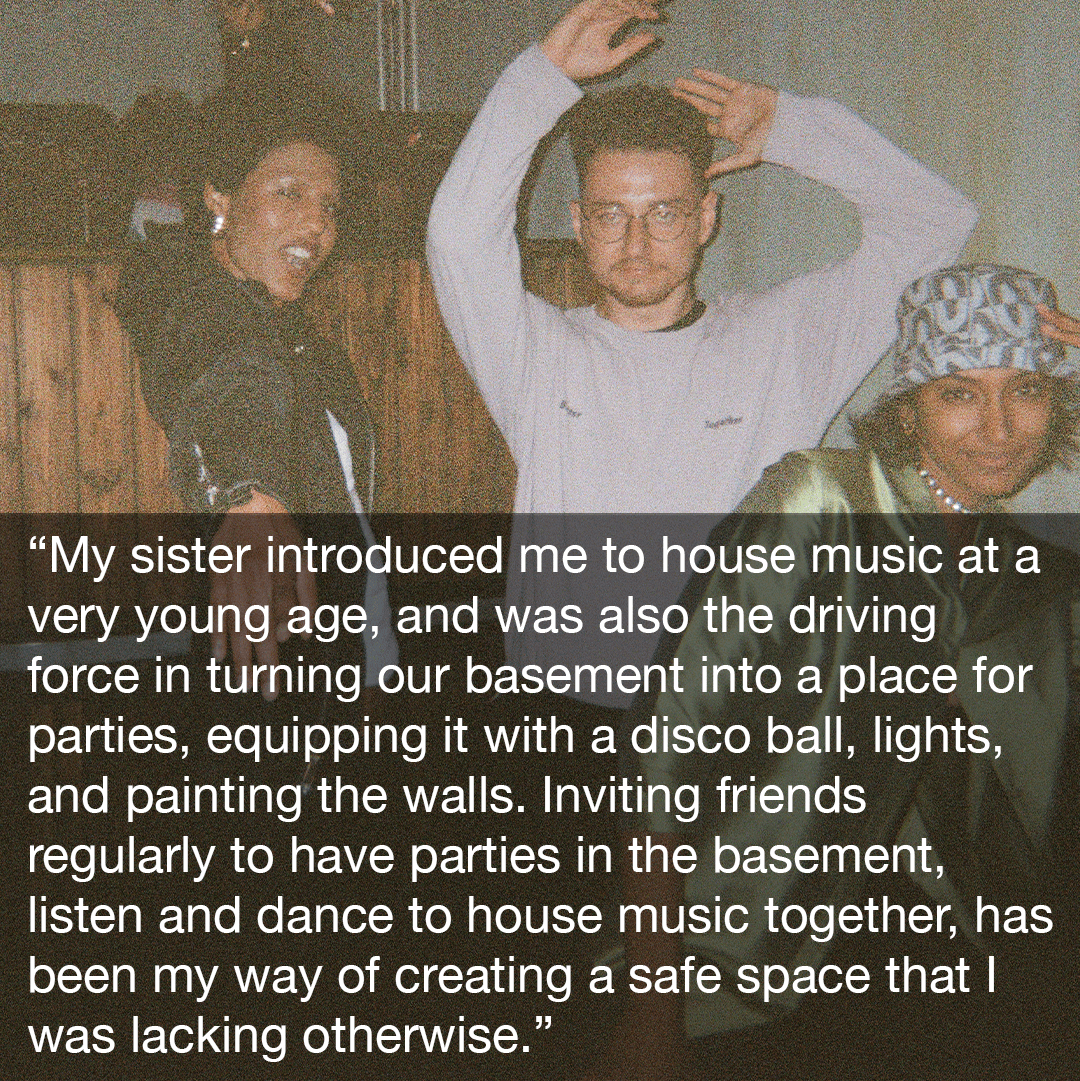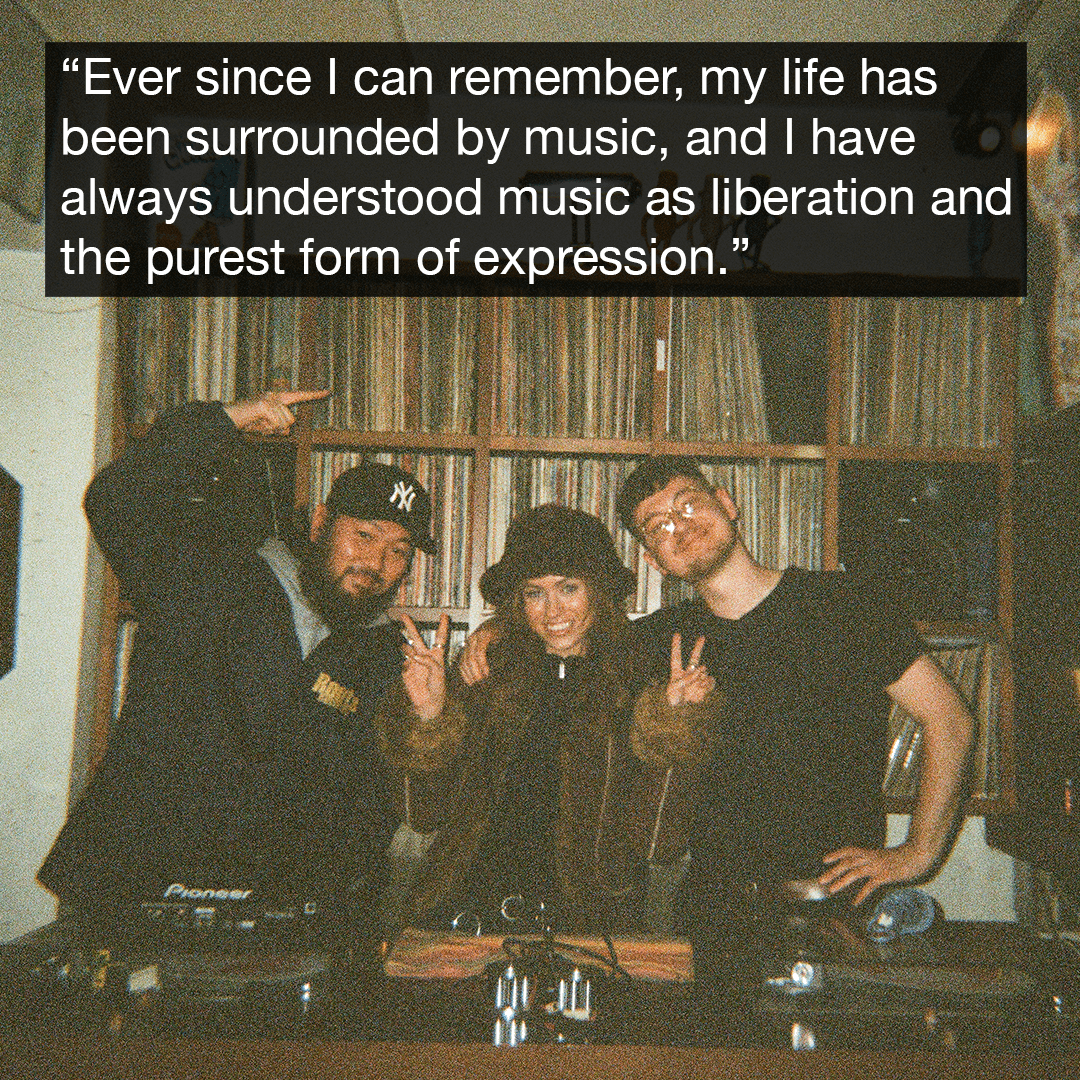SPOTLIGHT: ROBIN FLUX
Published September 19, 2023

Robin Flux has caught our attention, and we want you to know why. Learn about Robin’s experiences with travelling in NYC, Chicago and East Asia, how it has shaped his musical journey, and get some clever reflections on the potential of dance music and culture to create a better tomorrow, in this interview.
Hi Robin, how are you at this moment in time?
Thank you so much for inviting me to this interview. I am doing good, just arrived back from a moving time touring in East Asia, now settling back in Copenhagen and figuring out what my next chapter could look like.
Can you give a little bit of background story to your way into working with music?
Music has always been deeply connected and intertwined with my background as a dancer, getting intrigued by electronic music and street dance around the age of 12. At that age, I got my first turntables to learn beatmatching with vinyl records, learning step by step how to program synthesizers and produce electronic music, as well as starting to practice different street dance styles and learn about the culture around it. Ever since I can remember, my life has been surrounded by music, and I have always understood music as liberation and the purest form of expression.
As I got older, I became curious about the historical and cultural context of this music surrounding my life, which developed into a deeper connection. I understood that house and techno music, as well as club dance forms such as voguing, waacking, and house dance, which evolved along with the music, originated in the labour and artistry of the queer Black and Latinx community in the early club era in the US.
Since these forms of expression come from a time of oppression of marginalized queer people of colour, I began to understand why this music and dance have always been so present and meaningful in my life, as a queer person myself growing up in a predominantly homophobic environment. Both music and dance have always been my safe space that I missed in everyday life.

What’s your relation to your hometown — how has it influenced your journey as a musician?
I’m from the Ruhr Area in Germany, somewhere in between the big German cities of Cologne, Düsseldorf and Dortmund. What I appreciate about the Ruhr Area is that it’s very culturally diverse, the big cities are very interconnected, and there are definitely a lot of talented people in the music and dance scene who are working hard to keep the scene alive.
My sister introduced me to house music at a very young age, and was also the driving force in turning our basement into a place for parties, equipping it with a disco ball, lights, and painting the walls. Inviting friends regularly to have parties in the basement, listening and dancing to house music together, has been my way of creating a safe space that I was lacking otherwise.
Later, the deeper meaning of it all unfolded when I moved to Cologne, experienced and participated in the vibrant nightlife, and did my first club gigs as a DJ. I understood why I needed to do this and what it all meant to me. I’m sure that all this influenced me fundamentally to become the artist and person I am today.
You have travelled a lot, can you name a few highlights in regards to places or events that have been part of influencing your musical awareness and journey?
Without a doubt, the biggest influence on my musical journey was my time in NYC and Chicago, as well as the recent tour in Japan and Korea. Visiting the birthplaces of house music and club dance culture, NYC and Chicago, and playing gigs there, has always been a childhood dream which actually came true last year.
I was absolutely stoked when I had the opportunity to work for Ableton in Brooklyn and publish my academic work on dance and technology at a conference in Chicago. Besides work and studies, I spent most of my time going to dance sessions and jams, spending countless nights in legendary clubs, sometimes even talking to living pioneers whom I deeply admire, or playing myself in revered NYC venues. All this had a huge impact on my connection between music, dance, and club culture, and also made me reflect on my past.
In NYC, my highlights were the dance sessions, at night in the dance studios or on Sundays in the parks, in particular, the ballroom sessions held every Monday night in Brooklyn, the energy of which I had never experienced in any club setting before. I loved the Sunday daytime parties where club heads of all ages, sometimes even families with their children, created a magical atmosphere of togetherness and genuine connection with each other on the dance floor.
Chicago was very special to me as I met house pioneer Derrick Carter, who became a dear friend to me. Along with famous Gramaphone Records owner Michael Serafini, he runs the iconic queer Sunday party “Queen!” at the legendary Smartbar. All these deep conversations about the history and culture around dance music, and the faces and personal stories behind it, as well as experiencing those iconic parties and venues in NYC and Chicago myself, inspired me to start my own club concept here in Denmark. That’s when “Universal Language” was born, created together with my DJ, dance partner and dear friend So,oul, whom I met at our beloved Sunday daytime dance sessions “Fuse Point” in Copenhagen.
East Asia was a whole different story, but nevertheless a mind-blowing experience. I’ve never even dreamed of touring in Japan and Korea, but it did happen this year, and I learned a ton of things, grateful for every single encounter. Japan specifically has such a rich and long history in electronic music, club and dance culture, all embedded in Japanese culture combined with a great nostalgic love for vinyl, analogue rotary mixers, and custom-crafted audiophile sound systems. This whole experience, playing around 30 gigs across Japan and Korea, was perhaps the wildest experience in my life, far away from my comfort zone.

We have picked up, that you are on a mission to “bring dance culture back into the clubs”, how do you see the Danish electronic music scene at the moment, and do you have any wishes for the future?
Even before I was allowed to legally enter a club, I always envisioned what it would be like, or perhaps how I would want it to be. People of all backgrounds, ages, genders, and sexualities come together on the dance floor, all being equal, all immersed in the music and together creating a safe space where we feel free to move and express ourselves without being judged. Finally, the experience with clubs in Germany and then in other European countries was quite… disenchanting.
Unfortunately, the reality is that, especially in commercialized nightlife environments, everyone is turned towards the DJ when they’re not recording videos on their cell phones. People are not present anymore and often it’s not about the music, nor a feeling of community. When I got the opportunity to dig even deeper into the roots of house and techno music and the origins of club culture, I was quickly determined that I wanted to make a difference, to find a different way of clubbing that was more reminiscent of the feeling from the early days, to create a space where people can actually *dance* and move freely, without judgement, regardless of their background and whether or not they consider themselves as dancers.
Projecting this to the future of the Danish electronic music scene, I’d wish for more awareness of the importance of club culture, for the audience to leave their ego at the door, understand the club space as a community space, dance with each other, create a safe and inclusive space with each other, be present with yourself, with others, and most importantly with the music.
What are in your opinion essential qualities that make a good DJ? A good dancer? A good audience?
I consider a good DJ who is dedicated to their music, while they are doing their homework and know and respect the roots, history and cultural context of the music they work with. A good DJ, in my opinion, is present with the crowd and the energy in the room, and when necessary, discards any prepared sets and routines to create the musical journey in the moment together with the audience.
I think a good dancer respects each other’s space, knows how to give and take space, doesn’t bring their ego on the dance floor, is not judgmental of others or themselves, and dares to dance ugly, foolish, close their eyes and let go — to me, it’s not a performance, it’s a feeling.
A good audience is present at the moment, with themselves, with others and with the music! Many people forget that the DJ alone cannot create a memorable night, but that everyone in the club is responsible for it together. The DJ can only take the audience on a musical journey if they dare to go on that journey together, giving and sharing energy. On another note, a great audience for me is a community that takes care of each other and makes sure the person next to me feels safe and has a great time as well.
How do you personally seek inspiration? What’s your work routine?
Generally, I get super inspired whenever I step out of my own comfort zone, especially when I travel, meet new people, and take my time to immerse myself in other cultures and realities. Staying curious and not being afraid to take risks has kept me on my toes.
In terms of DJing and producing, I took lots of notes during those travels in the US and Asia, when I was digging crates in numerous record stores, or whenever I picked up something in a club, dance session or even in a random conversation. Anything can be an inspiration, and I try to keep these notes organized.
I’m still going through my notes from my past travels, backtracing some record labels or artists I have discovered, producing a song with this sample or rhythm I have recorded, or just following some thoughts and ideas from inspiring encounters. It’s a very slow and organic process, and I love everything about it as I can see how my musical journey has evolved over the past decade.
Any exciting projects in the pipeline for you? Something we should look forward to?
I’m very excited to progress more in curating intentional and queer-centred club spaces focused on dance culture. “Universal Language” is a project that is very close to my heart, and the process is challenging as it goes very deep to the core of why I do all of this. I can’t wait to let it grow and hopefully inspire other people in the scene.
As for my own music, I’m currently working on an EP where I’m trying to process all those meaningful experiences on my journeys abroad, especially drawing inspiration from the countless dance sessions primarily in the ballroom, waacking and house dance scenes, which are an endless source of inspiration and energy for me.
Apart from that, I’m happy to continue my collaboration with talented Cologne-based musician and singer Jenny Thiele, who already gave me the great opportunity to work with her improvised electronic music project “AnnaOtta” on experimental voice-only-based dance music.
And to end it on a less formal note… If you were a dance step, which one would it be?
Great question! I would be a Dip, the fierce and dramatic element of a vogue performance.
READ MORE: